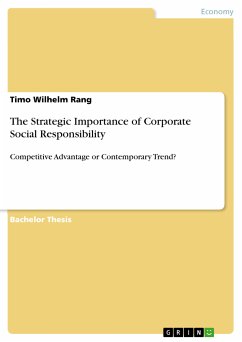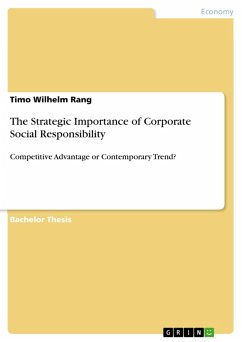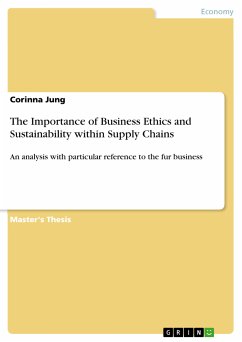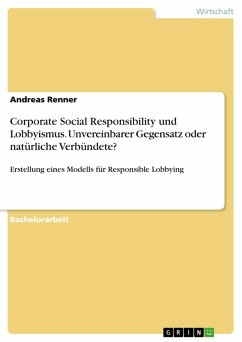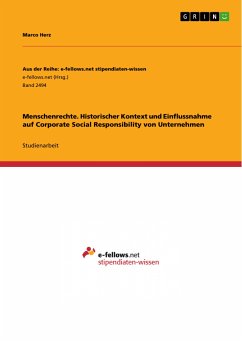Bachelor Thesis from the year 2010 in the subject Business economics - Business Ethics, Corporate Ethics, grade: 1,3, Otto-von-Guericke-University Magdeburg (Lehrstuhl für Internationales Manegement / Institut für Philosophie), language: English, abstract: “Profit is as necessary as the air we breathe, but it would be terrible if we worked only to make a profit, just as it would be terrible if we lived only to breathe.” (Hermann Josef Abs, former CEO of Deutsche Bank) 1. Introduction: From the Honorable Merchant to the Responsibilities of Multinational Companies 2. Business Ethics: The Creative Tension between Entrepreneurial Freedom and Moral Constraint 2.1 The Company as a “Corporative Actor” 2.2 Moral and Profit: Two Antithetical Concepts? 2.3 Globalization: Economic Chances and Ethical Challenges 2.3.1 The Importance of Human Rights for CSR 2.3.2 Benchmarking CSR: The UN Global Compact 3. Strategic Corporate Social Responsibility 3.1 Hurdles to Effective CSR 3.2 Strategic Planning and Strategy Realization 3.2.1 The Responsibilities of a Company 3.2.2 The Intersections of Business and Society 3.2.3 Responsive CSR contra Proactive CSR 3.2.4 Strategic Corporate Philanthropy 3.3 Supply Chain Sustainability and Context Improvement: The CSR Strategy of Nestlé in India 4. Conclusion The first chapter examines the intrinsic problem areas of CSR such as the differences between individual and collective responsibility; the fundamental conflict between profit and moral; and the tension between universal ethical norms, national or international legislation and entrepreneurial freedom. In the last two subchapters the challenges and chances of globalization are illustrated. The second chapter focuses on the business perspective on CSR. The aim of this part is to reconcile the conflicts described in the first chapter in ways that can create mutual benefits for both the society and companies. At first, practical problems of planning, implementing and evaluating CSR activities are discussed. Starting from there, a strategic concept of CSR is developed that understands ethical and philanthropic responsibilities as firm and context specific competitive advantages. Management tools are presented that help to localize and address ESG issues with beneficial potential for society and business alike. Concluding, the activities of Nestlé in India illustrate a good practice example for a CSR strategy that aligns social communal engagement and profitability.

